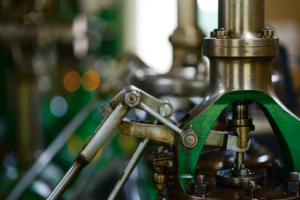Once upon a time, it was the stuff of science fiction. The dystopian worlds of writers like Asimov and Ballard envisioned a time when many human occupations would be made redundant, replaced by technology. But, unlike travel by jet pack and a colony on the moon, this does seem like a prediction that could well come to pass in our lifetime. Incredible advances in computing and artificial intelligence led to a 2017 report that predicted the eventual loss of 800 million jobs worldwide due to automation. These far-reaching effects will impact society just as the individuals forced out of making an honest living.
But which jobs are immediately under threat from the development of AI and other technological advances?
Insurance underwriter
The rise of aggregator websites was just the start of an industry-wide shake-up. By putting individual policies alongside one another, insurers had to drive down prices to be competitive. The quest for efficiency is now going even further, with a number of major insurers investing in automated underwriting services. Feeding in the relevant customer data – volunteered by them, obviously – allows the system to create an instantaneous risk assessment, which insurers can use to quote a price. Removing the human element creates a fully standardised platform that ought to be fairer to prospective policyholders, but at what cost?
Bank staff
The internet has changed the way we do a lot of things. Online shopping baskets, faster delivery of groceries and instant transactions are transforming the way we spend. But managing money has changed too – with 69% of Brits regularly using online banking services in 2018, way up from the 30% recorded before the worldwide financial crisis of 2007-8. Combined with a declining use of cash and increase in electronic payments, the ATM is now most people’s main method of interaction with the banking that they can’t do online. But with around 60 UK bank branches a month closing, our landscape is changing quite rapidly – as are the prospects of bank managers.
Financial adviser
For those of us who put our money prospects in the hands of a financial adviser, the future could be very different indeed. More and more financial institutions are starting to introduce so-called ‘roboadvice’. These fully automated systems make calculations based on an individual’s attitude to risk, their investment amount and overall goals, and automatically makes those investments on their behalf. The kicker for companies like Nutmeg, who claim to currently carry millions of pounds of investors’ money, is that their services can be levied for a fraction of the fees of their human colleagues. While we’re not exactly clamouring to have our money handled by robots right now, in an especially sensitive time for the financial market, the technology is nonetheless an astonishing example of our innovation.
Builder
Not even the construction industry is safe from the march of automation. And the forward-thinking UK looks set to welcome it with open arms. Huge housing shortages plus increasing demand for workers equals a big opportunity for developers. Specific jobs under threat include bricklayers – who can normally lay up to 400 bricks per day – as machines like SAM are being developed that can increase productivity by three to five times. Similarly threatened are crane operators and digger drivers, who are increasingly being replaced by AI-operated machinery.
Casino dealer

It may seem like an unlikely job for widescale replacement, but the huge growth of online casinos means there’s a real possibility that an important part of the playing process could one day be automated. Many gamblers are already enjoying casino games through the use of machines, but could we see the human element disappear altogether? A clear argument against removing humans from casino games is the qualities they bring that robots cannot. Many consider a huge part of visiting a casino, either land-based or online, is the intimate feeling of being greeted by a real person. In fact, online casinos appear to be going in the opposite direction. They have made the move away from a reliance on machines and their impressive offering of live casino with real dealers is attracting a lot of interest. The live casino games are all hosted by a fully qualified croupier who plays in real time, all thanks to a clever device which converts the action to digital information. So, it appears casinos will continue to use technology to their advantage, but croupier’s jobs look safe, for now.
Taxi driver
With limited tests in busy cities so far proving successful – if not completely incident-free – there’s been a great deal of talk about driver-less cars in recent times. In Singapore there are already at least a dozen on the road, so it won’t be long before they start to appear on the roads worldwide. Of course, it’s not just taxi drivers who will be affected. Anyone who makes a living from being behind the wheel – from bus drivers to long-distance lorry drivers – could see themselves being reduced to pedestrians someday soon.
Manufacturing worker

First, the West saw huge numbers of its manufacturing jobs heading out to the Far East – where labour costs are considerably cheaper. And now, even in China, many of those jobs are being replaced by robots who can make things more quickly, accurately and cheaply. In one of the biggest replacement exercises seen to date, Foxconn, a manufacturer responsible for making many high-tech items from iPhones to Xboxes, is recently reported to have replaced 60,000 workers with robots.
Journalist
One might have thought that the power of the written word, and the insight required to string them together in many meaningful ways, might make it safe from automation. But in a world where more and more journalism is online and the decline of print, there are already AI programmes that can take in information and convert it into basic news stories. These can even be altered to adopt a particular tone of voice for different sites and audiences. A piece of poetry recently submitted by Thomson Reuters Research took first prize in the Turing Test – fooling a panel of experts into thinking it had been created by a human, when in fact it was created by software.
Actor / Screenwriter
No cinema-goer will have failed to notice the huge effect that CGI has had on the industry in recent years. But the ability to generate strange new worlds and mind-boggling special effects is going further than ever. Since the late Peter Cushing reprised his role as Grand Moff Tarkin in Rogue One – a full 22 years after his death – it’s been predicted that computer-generated actors will soon be appearing in even more major roles.
As to the films in which they’ll appear, we got a sneak preview of the potential future of Hollywood screenwriting with the sci-fi short, Sunspring. Starring Silicon Valley’s Thomas Middleditch, the ten-minute film is comprised entirely of AI-generated dialogue and stage direction. Which explains…well, all of it.
So what does this all mean for the future? Will we be able to enjoy more leisure time and leave it to the machines to generate the wealth to support us? Or will there be huge competition for the real jobs still available? It’s something that no-one seems to have an answer to at the moment so we’ll just have to wait and see.

